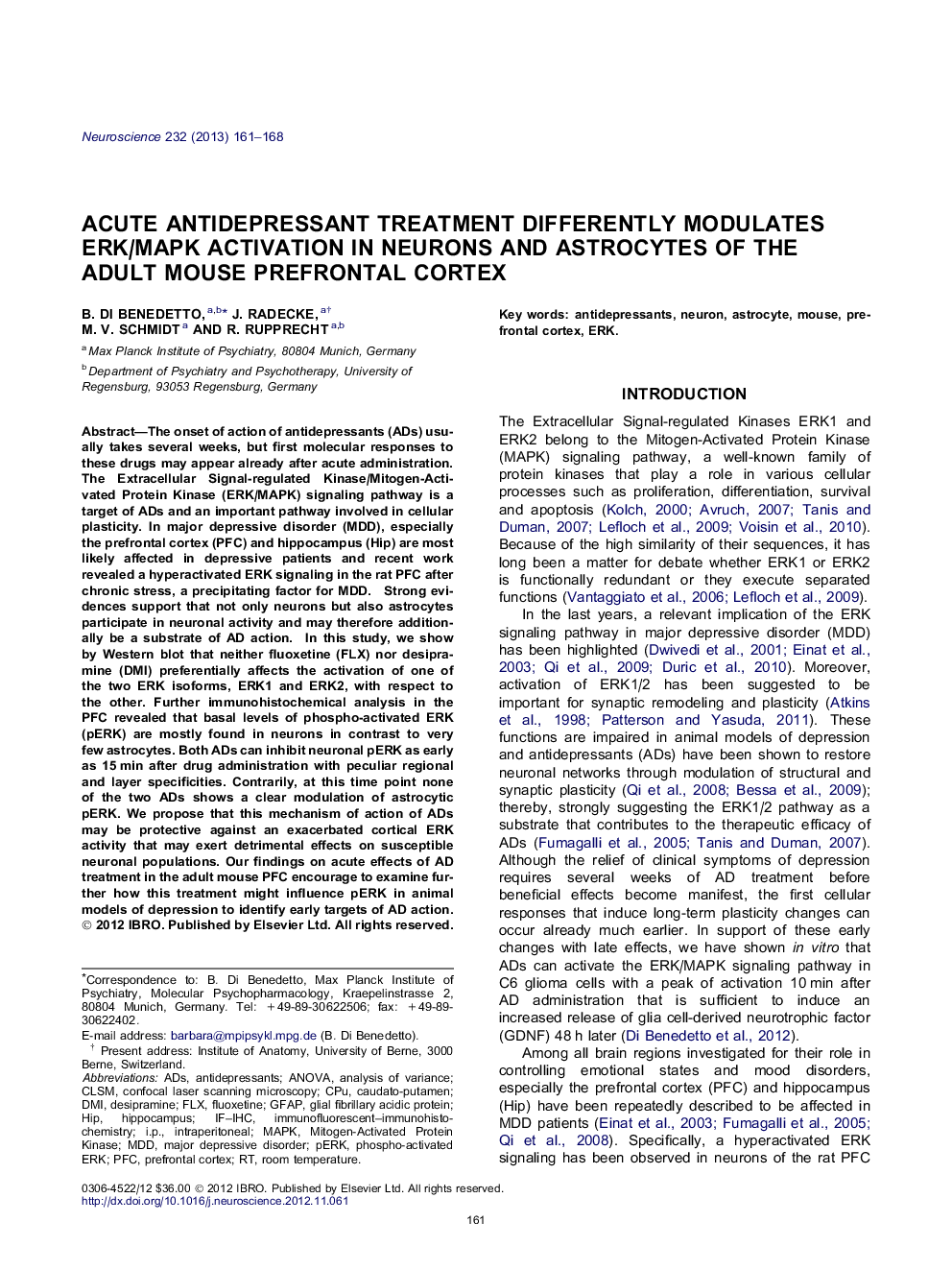| Article ID | Journal | Published Year | Pages | File Type |
|---|---|---|---|---|
| 4338100 | Neuroscience | 2013 | 8 Pages |
The onset of action of antidepressants (ADs) usually takes several weeks, but first molecular responses to these drugs may appear already after acute administration. The Extracellular Signal-regulated Kinase/Mitogen-Activated Protein Kinase (ERK/MAPK) signaling pathway is a target of ADs and an important pathway involved in cellular plasticity. In major depressive disorder (MDD), especially the prefrontal cortex (PFC) and hippocampus (Hip) are most likely affected in depressive patients and recent work revealed a hyperactivated ERK signaling in the rat PFC after chronic stress, a precipitating factor for MDD.Strong evidences support that not only neurons but also astrocytes participate in neuronal activity and may therefore additionally be a substrate of AD action.In this study, we show by Western blot that neither fluoxetine (FLX) nor desipramine (DMI) preferentially affects the activation of one of the two ERK isoforms, ERK1 and ERK2, with respect to the other. Further immunohistochemical analysis in the PFC revealed that basal levels of phospho-activated ERK (pERK) are mostly found in neurons in contrast to very few astrocytes. Both ADs can inhibit neuronal pERK as early as 15 min after drug administration with peculiar regional and layer specificities. Contrarily, at this time point none of the two ADs shows a clear modulation of astrocytic pERK. We propose that this mechanism of action of ADs may be protective against an exacerbated cortical ERK activity that may exert detrimental effects on susceptible neuronal populations. Our findings on acute effects of AD treatment in the adult mouse PFC encourage to examine further how this treatment might influence pERK in animal models of depression to identify early targets of AD action.
Graphical abstractFigure optionsDownload full-size imageDownload high-quality image (328 K)Download as PowerPoint slideHighlights► We examine acute effects of antidepressants (ADs) on ERK activity in the adult mouse. ► At basal conditions ERK activity is mostly displayed in neurons, less in astrocytes. ► ADs inhibit neuronal ERK in the prefrontal cortex 15 min after administration. ► ADs do not evidently affect astrocytic ERK at this time point. ► Fluoxetine acts in superficial and deep cortical layers, desipramine in deep ones.
